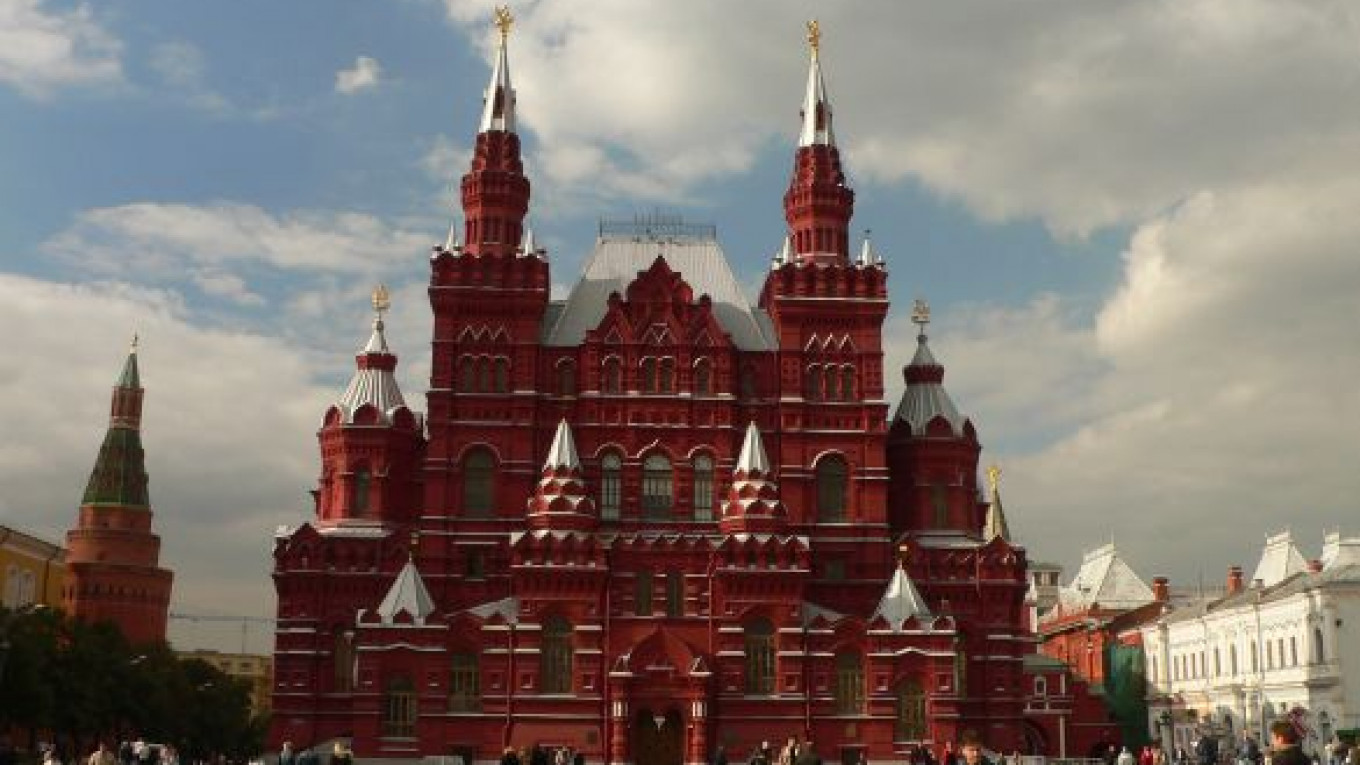There are ambitious plans to modernize two of the country’s top museums: the Historical Museum and the Polytechnical Museum.
President Dmitry Medvedev said in April that the Polytechnical Museum would be transformed into a modern science museum. Culture Minister Alexander Avdeyev earlier announced that a National Portrait Gallery, similar to London’s National Portrait Gallery but with portraits of prominent Russians, would be developed within the Historical Museum.
As part of the process, new directors were named to lead the museums through the reconstruction. Alexei Levykin was named director of the Historical Museum in June, and Boris Saltykov, a former science and technology minister, was named head of the Polytechnical Museum in mid-July.
As part of the reconstruction, a museum quarter will be created with a series of new spaces in the Historical Museum and nearby at Ploshchad Revolyutsii and Nikolskaya Ulitsa, Levykin said.
“Work on the creation of a museum quarter is already under way. Visitors will see the first results of this construction in 2012, during events to mark the bicentenary of [the war of] 1812. A permanent exhibition devoted to this war will begin in the courtyard of the museum, which will be covered in the reconstruction, as well as in the former Mint.”
The museum’s own exhibits will also face changes. “It’s a complicated and laborious problem,” Levykin said about the museum’s plans, adding that they would move slowly, room by room.
As for the National Portrait Gallery, Levykin said it is a long-term project, and that it is too early talk about when it will open.
The Polytechnical Museum also faces huge changes, but the initial search is on for what kind of museum it will become. A competition to decide the future of the museum attracted applicants from all over the world, said Natalya Sergiyevskaya, curator of the exhibition program of the Development Fund of the Polytechnical Museum, which was established by the Culture Ministry and Rusnano, the state corporation formed to promote nanotechnology. Applicants were to be examined earlier this week.
The new museum has to modernize to become a successful science museum but also has to find a balance between the old and the new, experts said.
“Several years ago, my colleagues and I examined the museums in South Korea,” said Galina Andreyeva, executive director of the Russian Committee of the International Council of Museums. “In most cases, they were very well-equipped, but often stood half empty.”
For now, the museum’s permanent exhibition will remain on display. “It will remain until the beginning of the reconstruction of the main building at least. We can only say with certainty what the new exhibition will be in a few years,” said Vladimir Shmelev, deputy director for development.
Nevertheless, some changes have already begun as it revamps its educational program. Museum management has drafted in the people behind
Theoryandpractice.ru, the popular site that organizes and collates lectures in Moscow and St. Petersburg, to advise them.
Public lectures have boomed in recent years, and the site has been at the forefront of the trend.
We said the museum should create an educational center and link the lectures more to what is going on in the museum, said Danil Perushev, director of Theory and Practice. “It must be linked to current exhibitions, illustrated with specific museum exhibits.”
And with fierce competition, the museum has to change the way that lectures are given so that they actually entertain the audience, Perushev said.
Changes are already visible with universities, embassies and foreign cultural centers invited to cooperate with the museum as seen in the lecture series “The Present Future,” which was backed by the New Literary Review publishing house and the Goethe Institute.
A Message from The Moscow Times:
Dear readers,
We are facing unprecedented challenges. Russia's Prosecutor General's Office has designated The Moscow Times as an "undesirable" organization, criminalizing our work and putting our staff at risk of prosecution. This follows our earlier unjust labeling as a "foreign agent."
These actions are direct attempts to silence independent journalism in Russia. The authorities claim our work "discredits the decisions of the Russian leadership." We see things differently: we strive to provide accurate, unbiased reporting on Russia.
We, the journalists of The Moscow Times, refuse to be silenced. But to continue our work, we need your help.
Your support, no matter how small, makes a world of difference. If you can, please support us monthly starting from just $2. It's quick to set up, and every contribution makes a significant impact.
By supporting The Moscow Times, you're defending open, independent journalism in the face of repression. Thank you for standing with us.
Remind me later.






